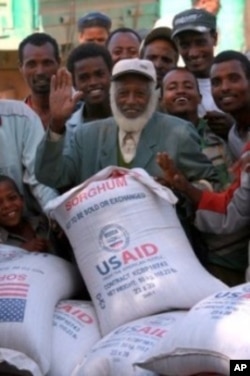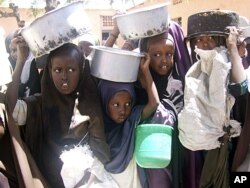This is Part 5 of a 5-part series: Strengthening Governance in Africa
Go to Part: 1 / 2 / 3 / 4 / 5
Traditionally, aid to africa has often been between individual countries and Western nations or banks.
Today, more participants are involved in delivering assistance, including international foundations and emerging economies like brazil, china, russia and india.
Timothy Shaw, a professor at the Institute for International Relations at the University of the West Indies, Trinidad & Tobago, says international taxes are another form of support for projects in developing countries.
“The airline tax is being implemented by some states like Spain, Korea, and the revenues are going to anti-malarials, anti-tuberculosis, anti-HIV-AIDS, etc. Carbon taxes and trading are certainly beginning because of the U.N. environmental conferences and climate change funds, including REDD (United Nations Collaborative Programme on Reducing Emissions from Deforestation and Forest Degradation in Developing Countries) is underway.
Shaw recently served as a panel member on aid in Africa at a conference held by the Africa Capacity Building Foundation in Kigali, Rwanda. The foundation is an international agency devoted to improving the ability of the government and private sector to promote growth and alleviate poverty.
For Shaw, the new sources of support for Africa mean a decentralization of aid, which, he says, is a healthy development.
“They tend to be more accountable and transparent because there are more eyes, many forms of accountability; it’s not just inter-governmental,” he says. “There is no one center, no one government or old man – no Museveni or Mugabe – that regulates everything.
“So African regimes cannot just extract a certain percentage like they used to be able to do. And this is fortuitous because traditional forms of aid are declining, in any case.”
As a result, he says, development funds are more transparent, a quality also reinforced by Africans living abroad who support their families back home.
“Diasporas,” he says, “are an important form of accountability, too because obviously Ghanaians in the US or Nigerians in Britain or Senegalese in Canada are used to democratic processes and tend to insist on those at home as well as in their adopted country.”
Shaw says he believes the effort to strengthen political and economic capacity in Africa is going in the right direction. He says there’s a growing recognition that there must be balance between the private sector and the state, which helps enforce the economic framework and attract investments.
Among the institutions responsible for delivering services to citizens, are the private sector, civil society, national governments, the press, and regional organizations including east and southern African parliaments.





